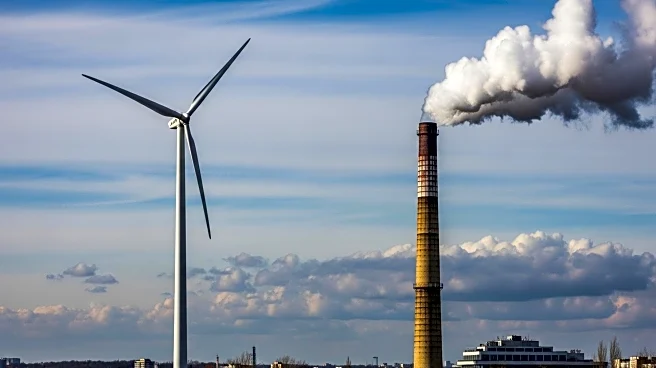What is the story about?
What's Happening?
President Trump has claimed that wind power is responsible for increasing energy bills in the UK. This statement comes as the UK energy regulator Ofgem announced a 2% rise in gas and electricity prices for millions of households. BBC Verify's Policy and Analysis correspondent, Ben Chu, examines the data behind these claims, exploring the relationship between renewable energy sources and consumer energy costs.
Why It's Important?
The debate over wind power and energy costs is significant as it touches on broader issues of energy policy and sustainability. Renewable energy sources like wind power are crucial for reducing carbon emissions and combating climate change. However, the economic implications, such as potential increases in consumer energy bills, are a point of contention. This discussion impacts public perception of renewable energy and could influence policy decisions regarding energy infrastructure and investment.
What's Next?
Further analysis and discussion are expected as stakeholders, including policymakers and energy companies, respond to President Trump's claims. The UK government may need to address public concerns about energy costs while balancing commitments to renewable energy targets. This could lead to policy adjustments or increased transparency in energy pricing mechanisms. The ongoing debate may also influence future investments in renewable energy technologies.
Beyond the Headlines
The criticism of wind power by President Trump highlights the complex interplay between energy policy, economic factors, and environmental goals. It raises questions about the sustainability of current energy strategies and the need for comprehensive approaches that consider both ecological and economic impacts. The discourse may prompt a reevaluation of how renewable energy is integrated into national energy systems, with potential implications for international climate agreements.

















